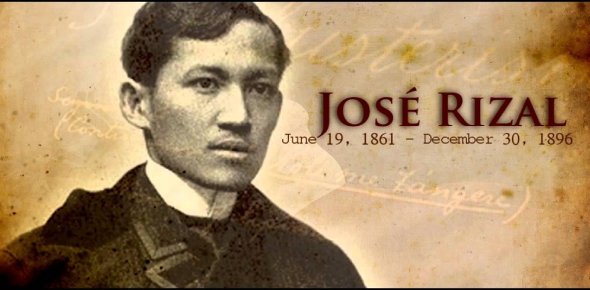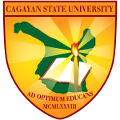Search results: 2064
The course deals with interaction between science and technology and social, cultural, political, and economic contexts that shape and are shaped by them. (CMO No. 20, series of 2013)
This interdisciplinary course engages students to confront the realities brought about by science and technology in society. Such realities pervade the personal, the public, and the global aspects of our living and the integral to human development. Scientific knowledge and technological development happen in the context of society with all its socio-political, cultural, economic, and philosophical underpinnings at play. This course seek to instill reflective knowledge in the students that they are able to live the good life and display ethical decision making in the face of scientific and technological advancement.
This course includes mandatory topics on climate change and environmental awareness.
The course deals with interaction between science and technology and social, cultural, political, and economic contexts that shape and are shaped by them. (CMO No. 20, series of 2013)
This interdisciplinary course engages students to confront the realities brought about by science and technology in society. Such realities pervade the personal, the public, and the global aspects of our living and the integral to human development. Scientific knowledge and technological development happen in the context of society with all its socio-political, cultural, economic, and philosophical underpinnings at play. This course seek to instill reflective knowledge in the students that they are able to live the good life and display ethical decision making in the face of scientific and technological advancement.
This course includes mandatory topics on climate change and environmental awareness.
The course deals with interaction between science and technology and social, cultural, political, and economic contexts that shape and are shaped by them. (CMO No. 20, series of 2013)
This interdisciplinary course engages students to confront the realities brought about by science and technology in society. Such realities pervade the personal, the public, and the global aspects of our living and the integral to human development. Scientific knowledge and technological development happen in the context of society with all its socio-political, cultural, economic, and philosophical underpinnings at play. This course seek to instill reflective knowledge in the students that they are able to live the good life and display ethical decision making in the face of scientific and technological advancement.
This course includes mandatory topics on climate change and environmental awareness.
The course deals with interaction between science and technology and social, cultural, political, and economic contexts that shape and are shaped by them. (CMO No. 20, series of 2013)
This interdisciplinary course engages students to confront the realities brought about by science and technology in society. Such realities pervade the personal, the public, and the global aspects of our living and the integral to human development. Scientific knowledge and technological development happen in the context of society with all its socio-political, cultural, economic, and philosophical underpinnings at play. This course seek to instill reflective knowledge in the students that they are able to live the good life and display ethical decision making in the face of scientific and technological advancement.
This course includes mandatory topics on climate change and environmental awareness.
 As mandated by Republic Act 1425, this course covers the life and works
of the country’s National Hero, Dr. Jose Rizal. Among the topics covered are
Rizal’s biography, and His writing, particularly the novels Noli Me Tangere,
and El Filibusterismo, some His essays and various correspondences.
As mandated by Republic Act 1425, this course covers the life and works
of the country’s National Hero, Dr. Jose Rizal. Among the topics covered are
Rizal’s biography, and His writing, particularly the novels Noli Me Tangere,
and El Filibusterismo, some His essays and various correspondences.
The course aims to expose students to different facets of the Philippine History through the lens of eye witness. Different types of primary sources will be used covering various aspects of Philippine life. Students are expected to analyse the selected readings contextually and in terms of content (stated and implied). The end goal is to enable students to understand and appreciated our rich past by driving insights from those who were actually present at the time of event.
This course deals with the nature of identity, as well as the factors and forces that affect the development and maintenance of personal identity.
The directive to Know Oneself has inspired countless and varied ways to comply. Among the questions that everyone has had to grapple with one time or the other is “Who Am I?” at no other period is this question asked more urgently than in adolescence –traditionally believed to be a time of vulnerability and great possibilities. Issues of self and identity are among the most critical for the young.
This course is intended to facilitate the exploration of the issues and concerns regarding self and identity to arrive at a better understanding of one’s self. It strives to meet this goal by stressing the integration of the personal with the academic – contextualizing matters discussed in the classroom and in the everyday experiences of students – making for better learning, generating new appreciation for the learning proves, and developing a more critical and reflecting attitude while enabling them to manage and improve their selves to attain a better quality of life.
The course is divided into three major parts. The first part seeks to understand the construct of the self from various disciplinal perspectives: philosophy, sociology, anthropology, and psychology- as well as the more traditional division between the East and West – each seeking to provide answers to the difficult but essential question of “What is the self” and raising, among others, the question “Is there even such a construct as the self?”
This course deals with the nature of identity, as well as the factors and forces that affect the development and maintenance of personal identity. The directive to Know Oneself has inspired countless and varied ways to comply. Among the questions that everyone has had to grapple with one time or the other is “Who Am I?” at no other period is this question asked more urgently than in adolescence –traditionally believed to be a time of vulnerability and great possibilities. Issues of self and identity are among the most critical for the young.
This course is intended to facilitate the exploration of the issues and concerns regarding self and identity to arrive at a better understanding of one’s self. It strives to meet this goal by stressing the integration of the personal with the academic – contextualizing matters discussed in the classroom and in the everyday experiences of students – making for better learning, generating new appreciation for the learning proves, and developing a more critical and reflecting attitude while enabling them to manage and improve their selves to attain a better quality of life.
The course is divided into three major parts. The first part seeks to understand the construct of the self from various disciplinal perspectives: philosophy, sociology, anthropology, and psychology- as well as the more traditional division between the East and West – each seeking to provide answers to the difficult but essential question of “What is the self” and raising, among others, the question “Is there even such a construct as the self?”

